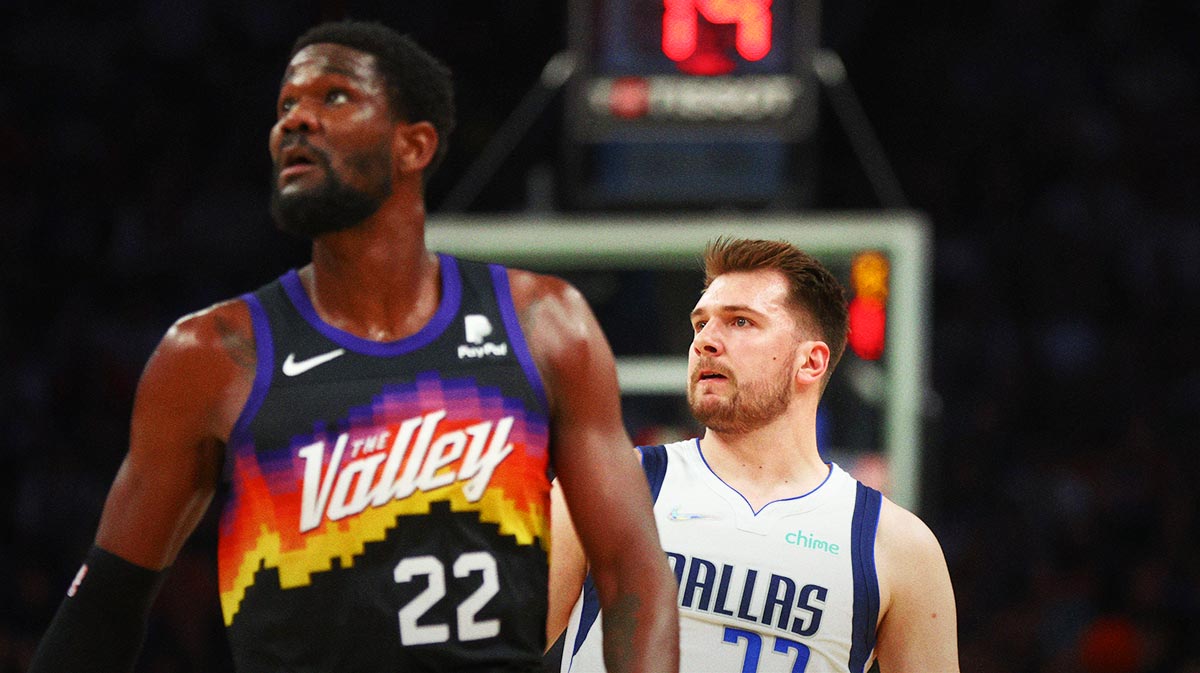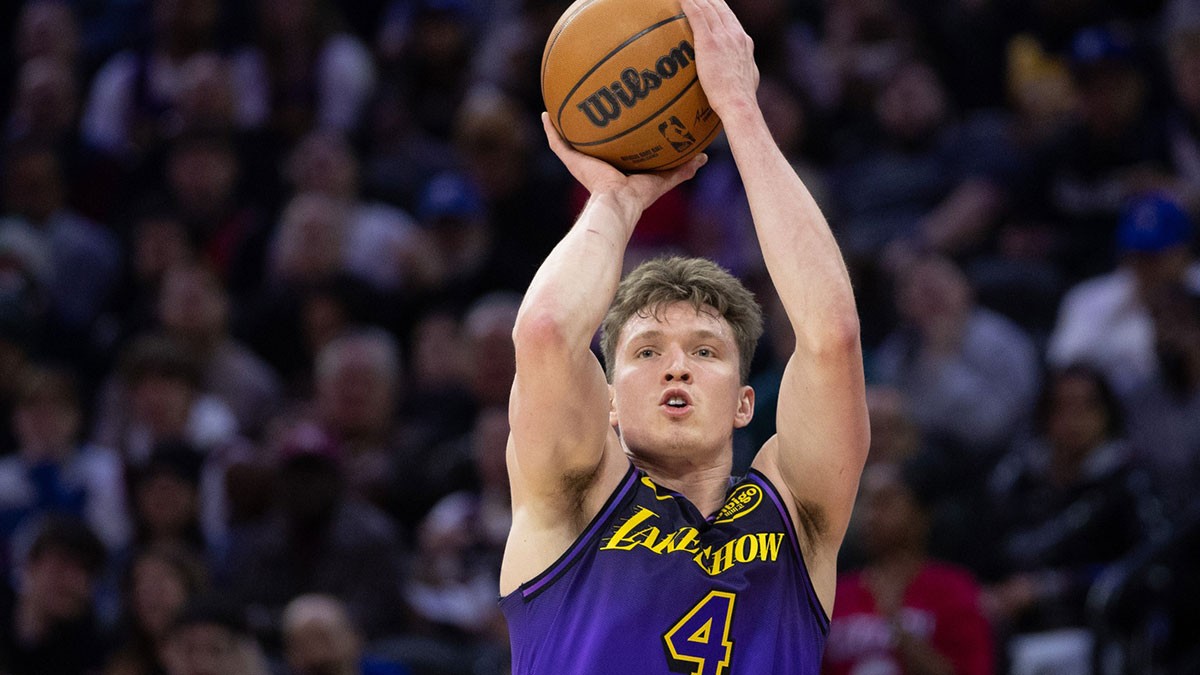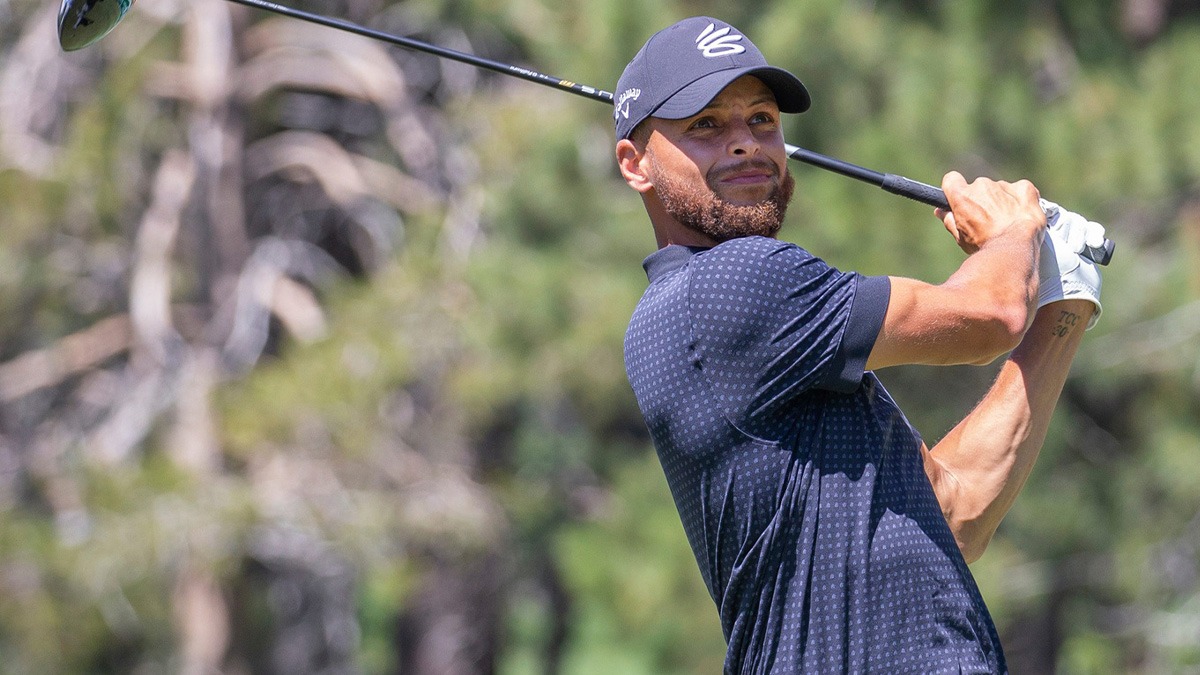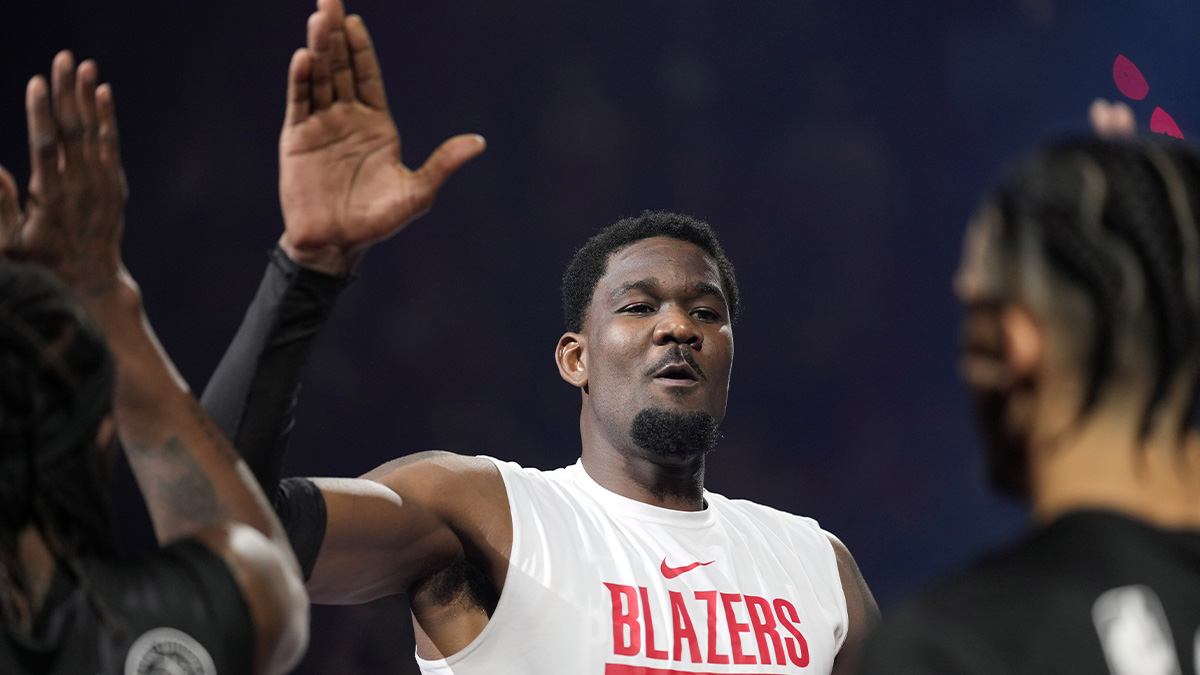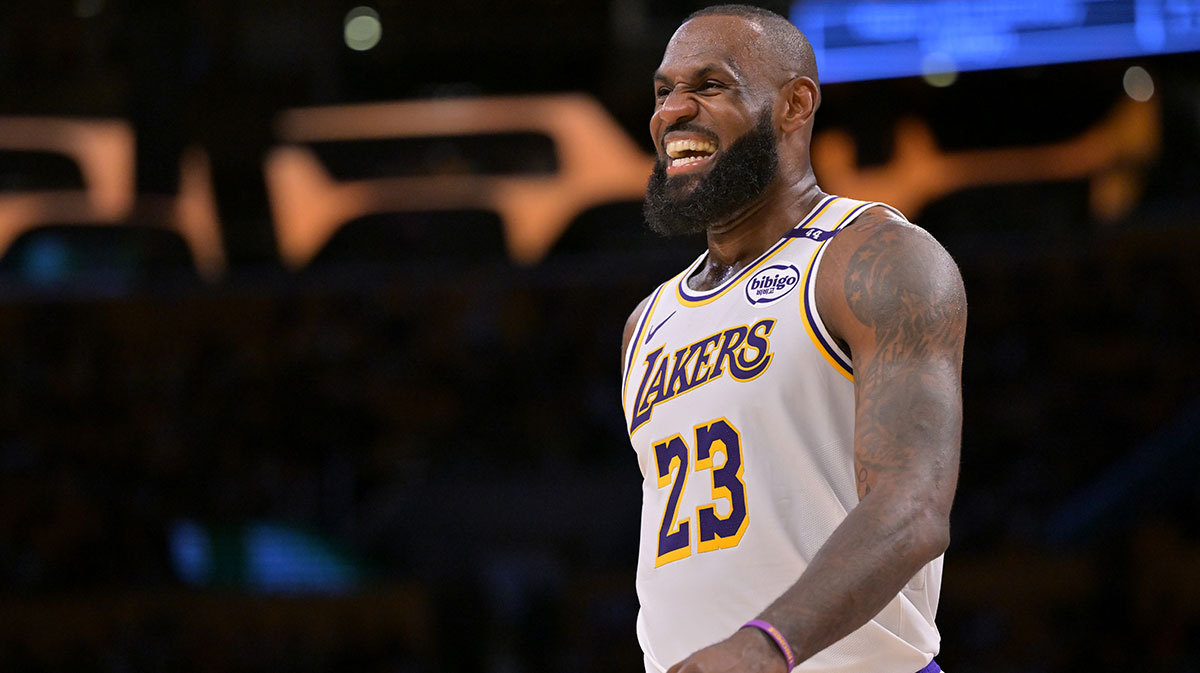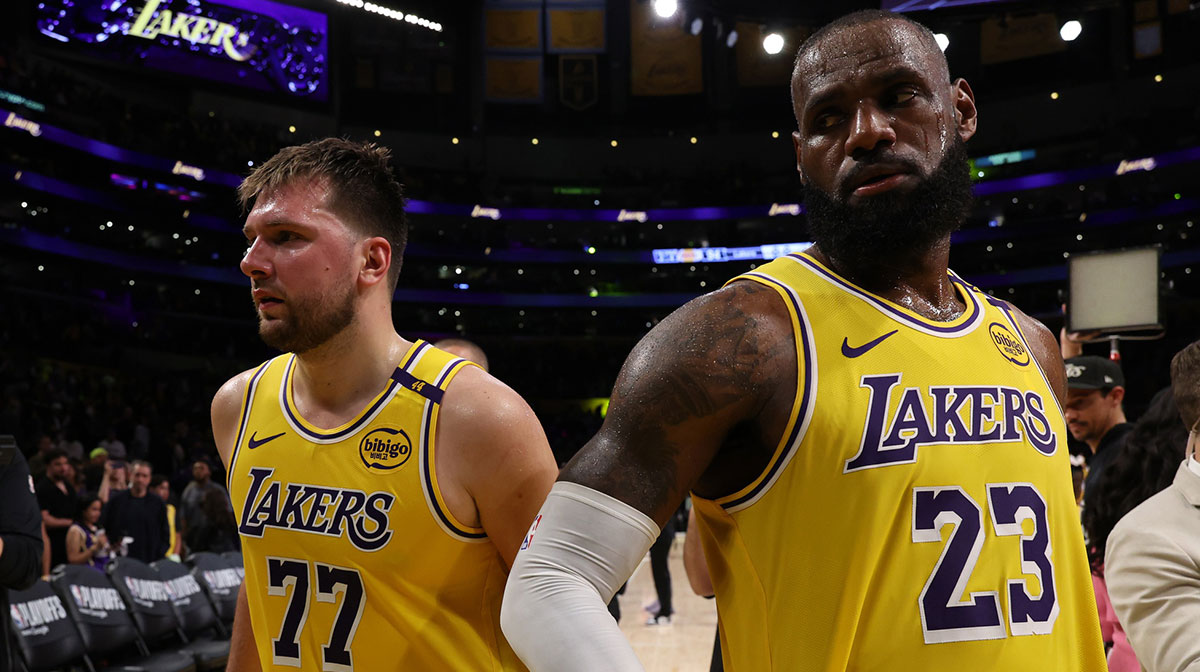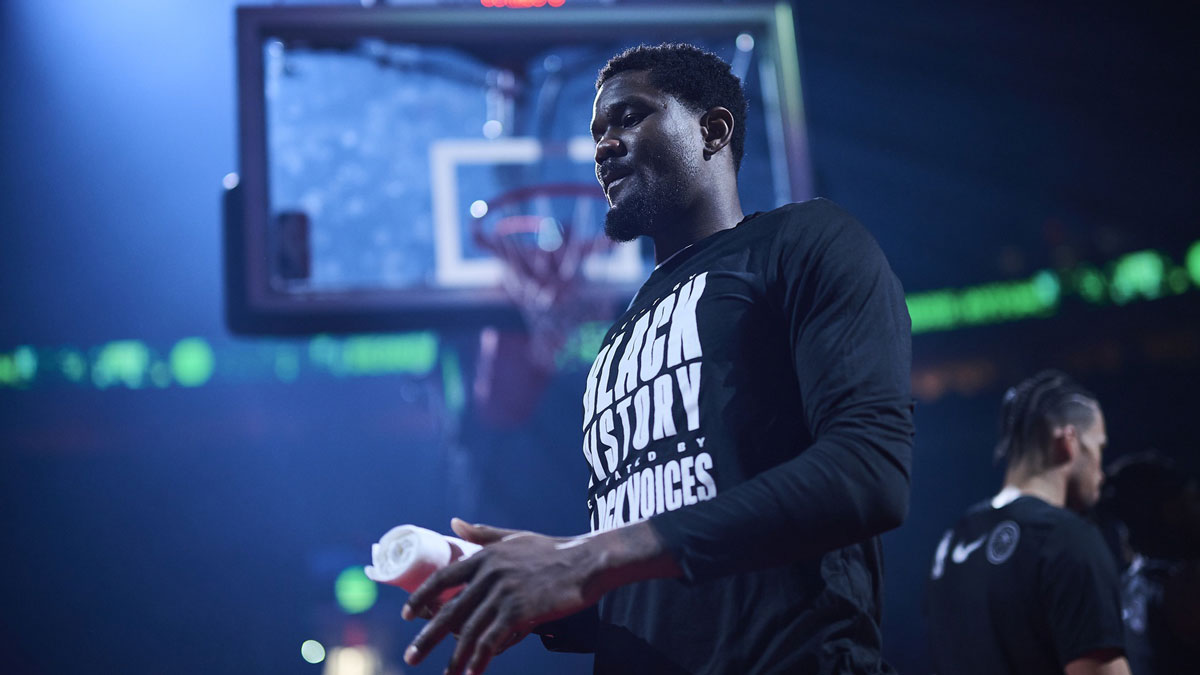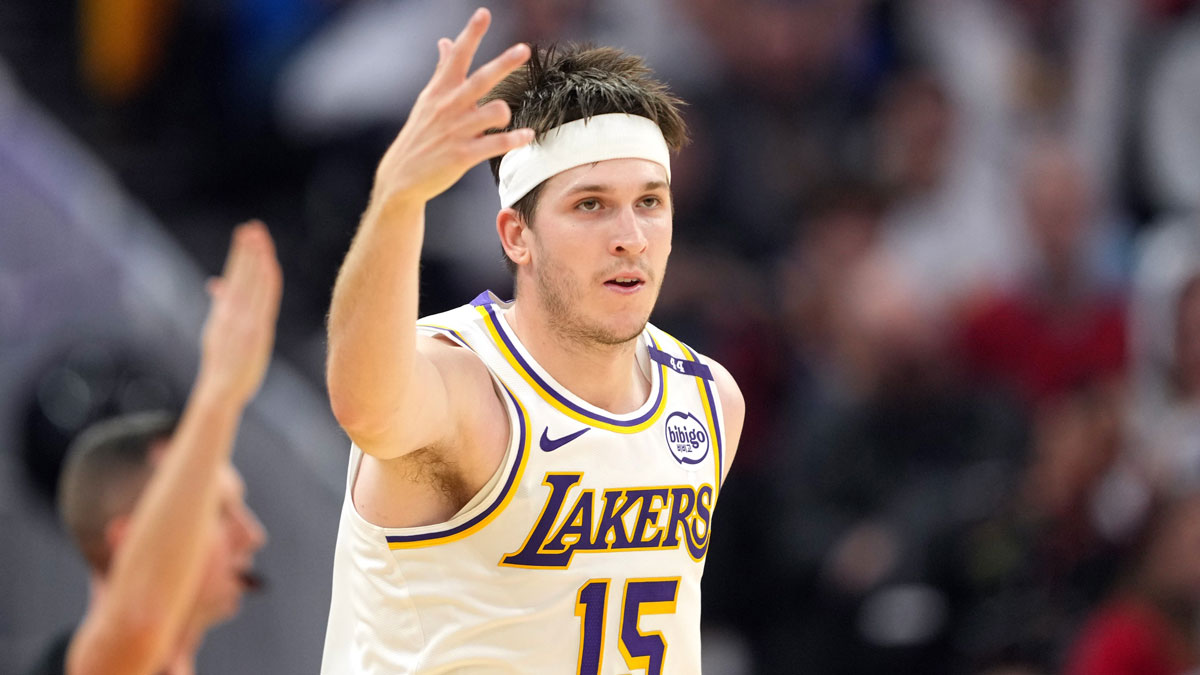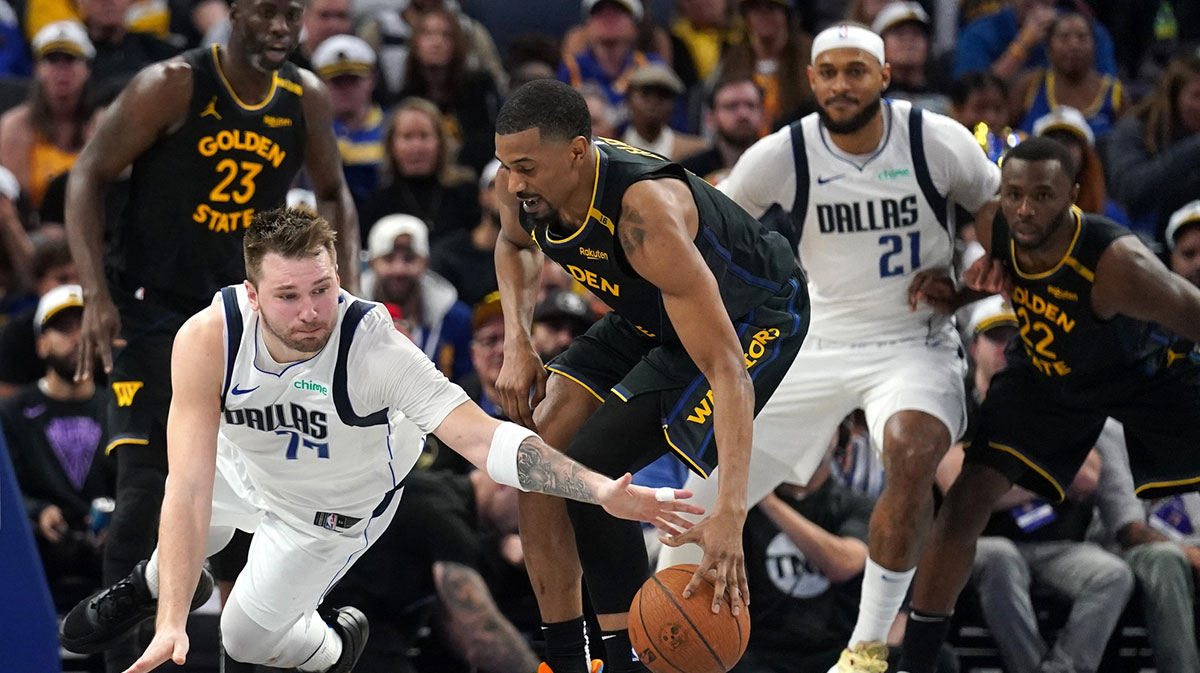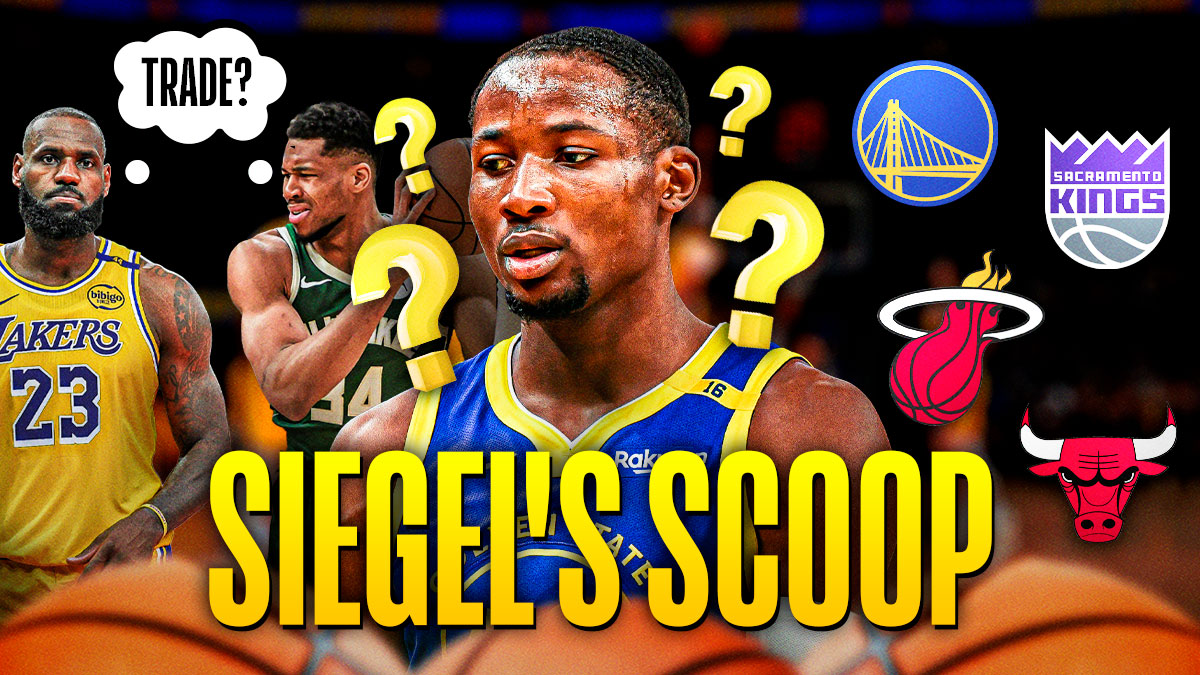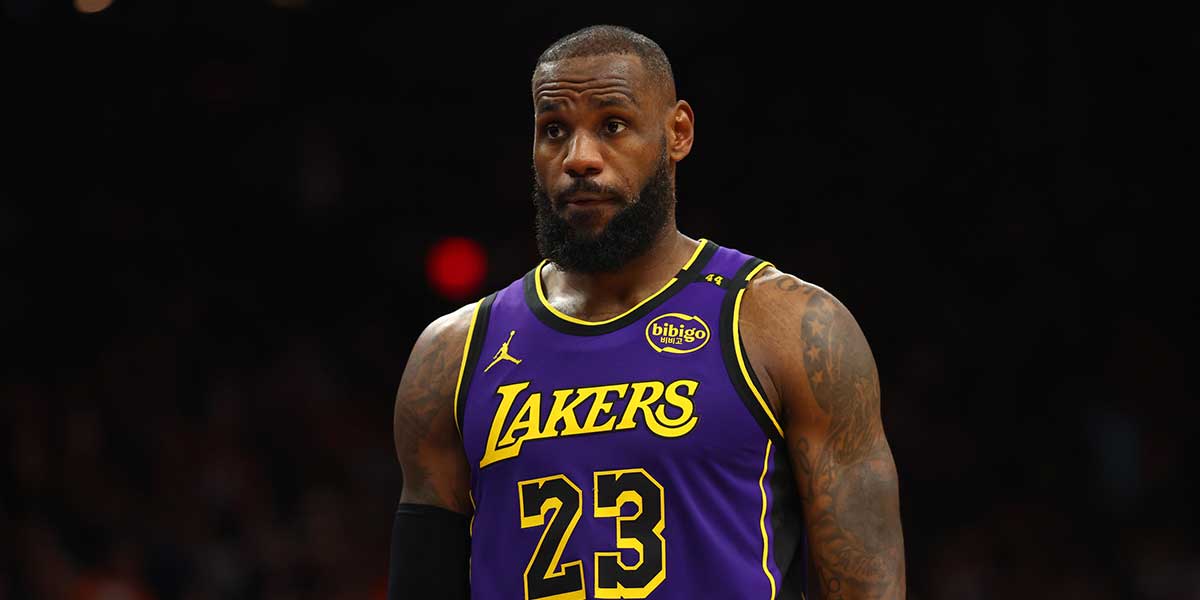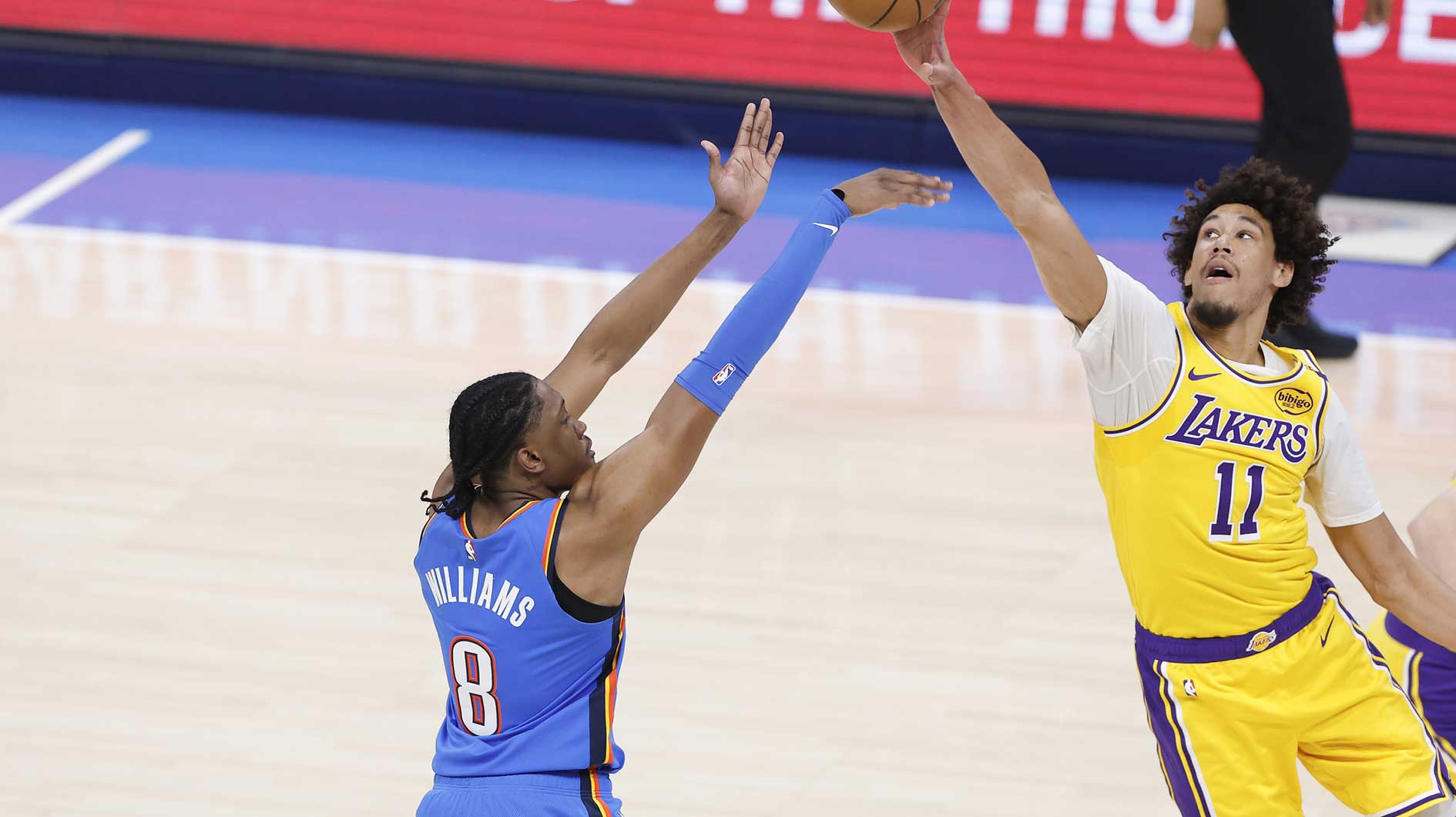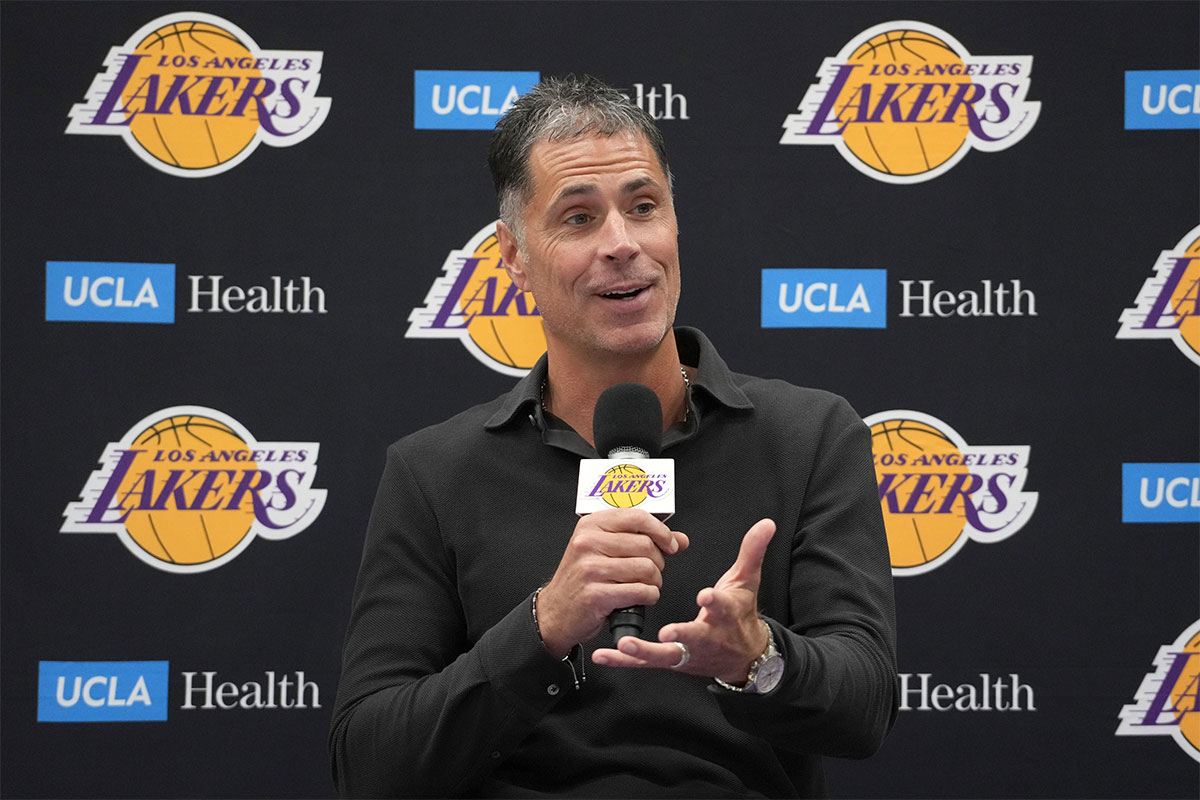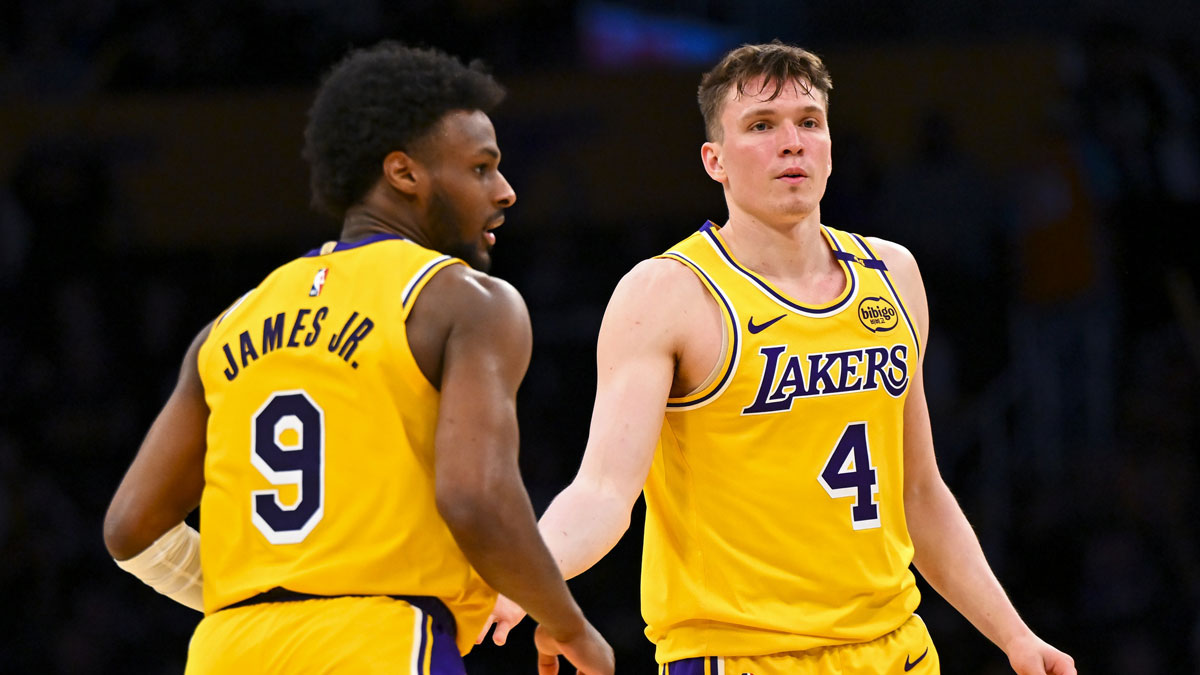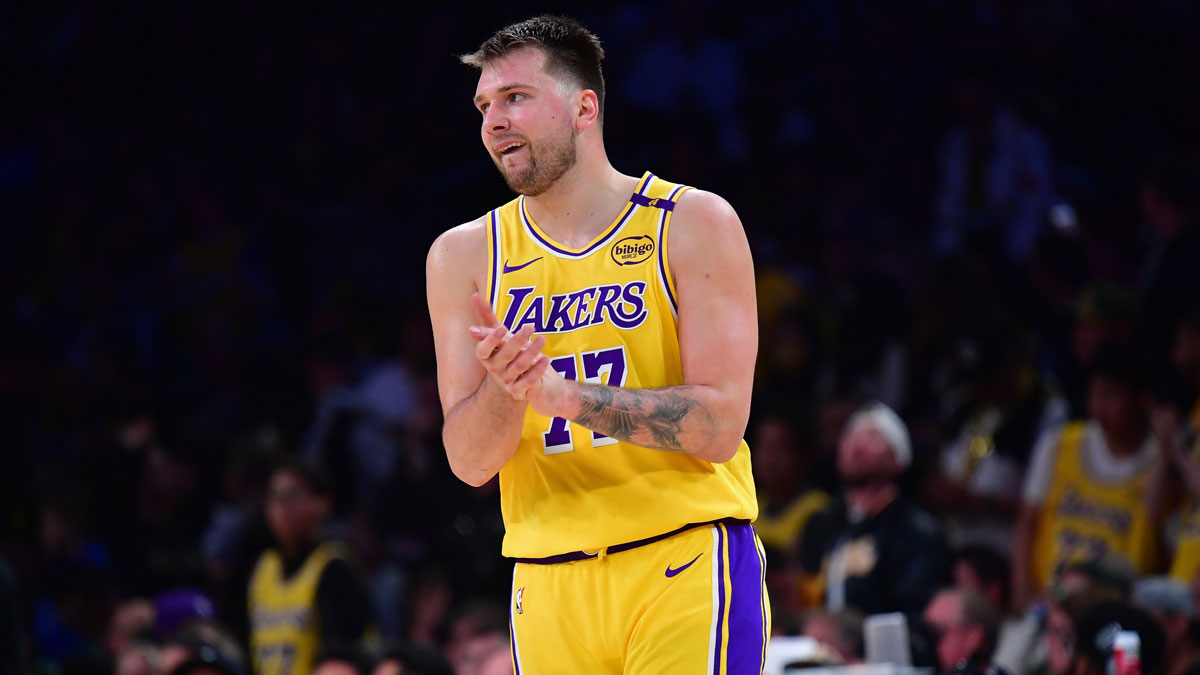Rookies aren’t supposed to be good. Not in the way the Los Angeles Lakers' Lonzo Ball is, at least. Here’s what rookies are supposed to do: show flashes of what they can be down the line, have a limited range of what is immediately effective, and be borderline unplayable on defense.
Here’s what they’re not supposed to do: help their teams win games in a reliable, consistent manner.
Don’t tell Lonzo Ball. The at-times enigmatic point guard of the Lakers has flipped the script, combining the blueprints for star prospects and rookie role players.
While Ball won’t win Rookie of the Year, the last two recipient’s of the award represent distinct barometers for first-year players, and Ball has seamlessly fused the two.
Karl-Anthony Towns, the 2016 winner, was a highly touted prospect who was drafted first overall after just one year in college. He did everything that was expected of him, scoring 18.3 points per game on a barrage of pivot variations, and rebounding everything in sight.
Malcolm Brogdon, the 2017 winner, was nearly the opposite. After a mild, four-year college career, Brogdon was drafted in the second round. He did everything well, and nothing spectacularly. He was merely a quality role player, quietly granting value to Milwaukee’s playoff squad.
More value, arguably, than Towns provided. While no one outside of Wisconsin (or inside it) would have put Brogdon’s expected career above Towns’, he was arguably the more impactful rookie.
Towns’ offensive artistry was all but negated by what was perhaps the worst individual defense in the league. He was elite, as far as prospects are concerned. In terms of wins added? He was just the 26th ranked center by ESPN’s RPM, at a meager 0.81, compared to the 1.44 score put up by the jack of all trades, Brogdon.

Wisdom beyond his years
In general, rookies who consistently provide value do so because of the limited scope of their role. OG Anunoby and Jordan Bell have provided the Toronto Raptors and Golden State Warriors, respectively, with ample value, in large part because their roles are constrained to favorable situations. Even Jayson Tatum, for all his glory, is his team’s fourth option and receives considerably beneficial match-ups on the defensive end.
But not Lonzo Ball. For better and worse, he has been thrown into the flames—as most top rookies are—and has responded with glimpses of future superstardom. The difference is, even with his well-documented early season shooting struggles, those flashes never came at the expense of consistent, valuable production.
For Ball, the successful concoction boils down to two concepts: restraint and self-awareness.

Most young players, especially those who are on lottery teams such as the Lakers, take the approach of rehearsing their struggles repeatedly until the weakness slowly becomes a strength. Defense never kept Towns off the floor. An inability to score efficiently only resulted in rookie-year Devin Booker seeking more opportunities. Shooters shoot, right? When in doubt, double down until a weakness has no choice but to morph into a strength.

Restraint until refinement
Ball has taken a more reflective approach. As his scoring has remained in the rearview mirror of his playmaking and defense, the mesmerizing point guard has sought to improve his basket-making in practice, while focusing on his more fully matured skills in games. He is the hub of his team’s offense, with 79.6 touches per game, a mark that is 15th in the league. Yet he shoots just 10.9 times per contest, a rank that tumbles all the way down to 95th.
It’s neither an inability to get open looks nor a hesitation to shoot when open. It’s simply a conscious decision to select the play with the highest probability for success, combined with a recognition of his own limitations that allows his calculations to be accurate, rather than biased.

The rest will come. It almost always does with top prospects, as Towns’ defense and Booker’s efficiency are showing in their third seasons. Since Dec. 1, Ball is shooting a very respectable 35.7% from deep, surely a harbinger of his eventual success.
But his ability to impact the game through myriad platforms, paired with an awareness that is justifiably absent for most 20-year olds, means he’s already administering value to a suddenly competent Lakers team.
And next year, when the team has realistic visions of making the playoffs, that value so typically associated with young role players will hold strong as his superstardom takes another step towards its seeming inevitability.


